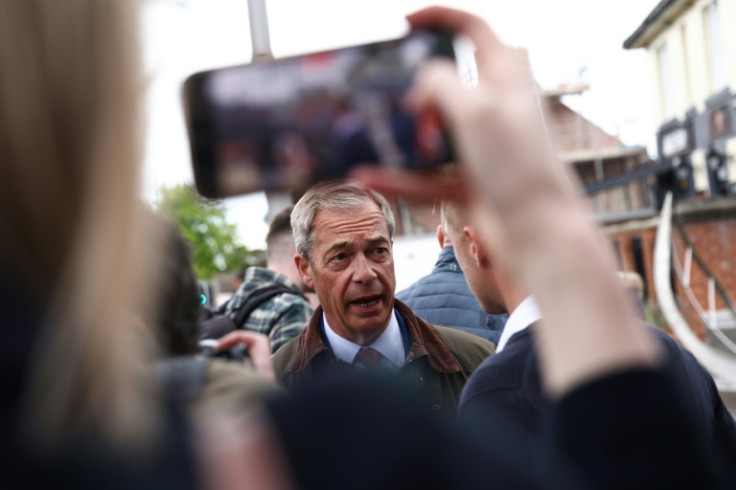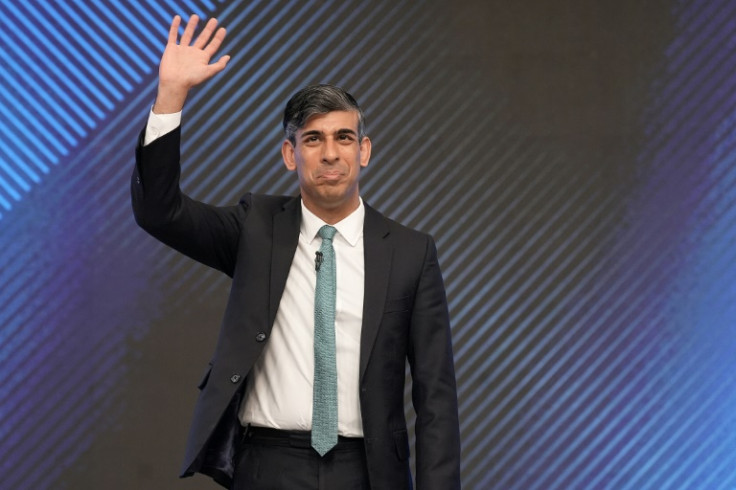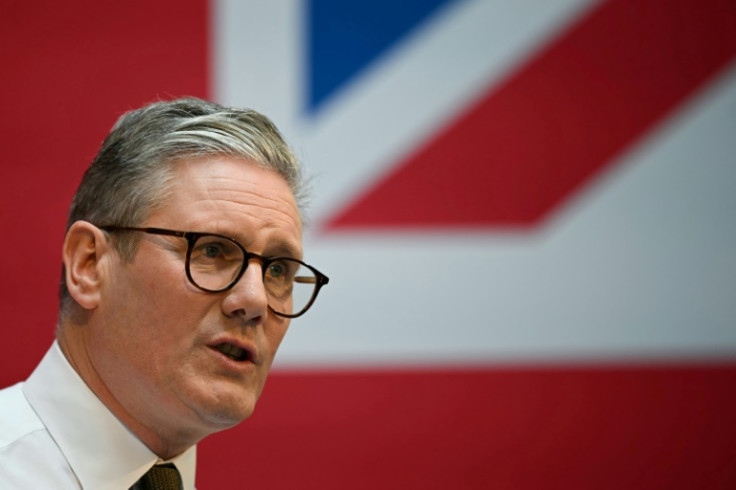Hard-right Reform UK Outstrips Tories For First Time In Poll: YouGov

The Conservative party of British Prime Minister Rishi Sunak has fallen behind the hard-right anti-immigration Reform UK party for the first time in a poll by YouGov, which called the development a "seismic shift".
The new poll, conducted on Wednesday and Thursday, shows Brexiteer Nigel Farage's Reform with 19 percent support going into national elections next month, compared to the Conservatives' 18 percent. Both are trailing far behind the center-left Labor party.
YouGov noted it was "worth keeping sight of the fact that these figures are well within the margin of error of one another -- we will not be able to tell for some time whether Reform can sustain or improve their position relative to the Conservatives".
Still, it added: "The fact that Nigel Farage's party are neck and neck with the governing Conservatives is a seismic shift in the voting landscape."
The poll showed the Labor party, led by Keir Starmer, still in a commanding lead at 37 percent, in line with other surveys that have put it some 20 points ahead for nearly two years.
Given the hefty and sustained polling lead, Starmer is widely expected to become the next prime minister.
But he is still fighting to overcome persistent Conservative claims that his party will recklessly spend public finances and increase personal taxes -- a perennial jibe from right-wingers.
Farage -- who at the last general election in 2019 did a deal with the Conservatives to avoid splitting the right-wing vote -- claimed on Thursday that Reform, rather than the Conservatives, now represents the main opposition party to Labor.
Sunak, in Italy for a G7 leaders' meeting, played down the opinion poll, insisting the election campaign had only just passed the half-way point.
"The only poll that matters is the one on July 4," he told British media, claiming that a vote for Reform would be "handing Labor a blank cheque".
How the opinion poll will play out if it is replicated on election day is unclear, with Britain's winner-takes-all first-past-the-post system favoring the bigger parties.
Some commentators have suggested the Conservatives, firmly on the back foot after a torrid 14 years in power marked by Brexit, Covid and a cost-of-living crisis, have tacitly conceded the election is unwinnable.
Senior Conservatives have taken to the airwaves in recent days to warn voters about handing Labour a "supermajority" in parliament for the next five years.
There are increasing questions, too, about what will happen to the Tories after the election, which would inevitably see Sunak under pressure to stand down if Labor wins by a landslide.
Any Tory leadership contest would likely be an ideological fight between the center-right and vocal right-wingers who have been increasingly critical of the party's immigration stance.
That has prompted talk of Farage joining the Conservatives.
But the former member of the European Parliament, who is standing to be a British MP for the eighth time of asking after seven failed attempts, has said instead that he wants to take over the party.
In 14 years, the Conservatives have gone through five prime ministers, including three in just four months in 2022.
Much of that was the result of Brexit.
But there were also other self-inflicted wounds, such as the chaos of Boris Johnson's time as leader and Liz Truss's short-lived tenure, when her unfunded tax cuts spooked the markets and crashed the pound.
Labour's Starmer, who is campaigning on promises to spur growth and restore economic "stability", is keen not to squander the party's huge poll lead, running a cautious campaign to end Tory "chaos".


© Copyright AFP 2025. All rights reserved.





















